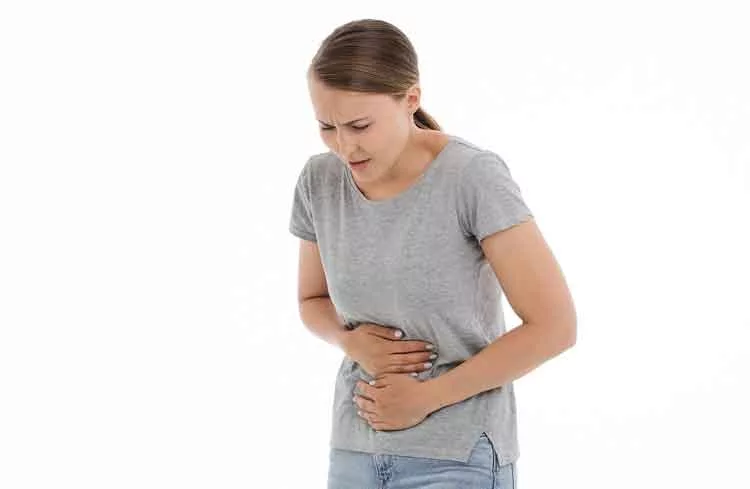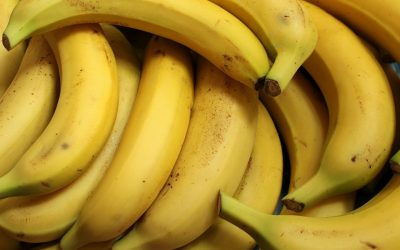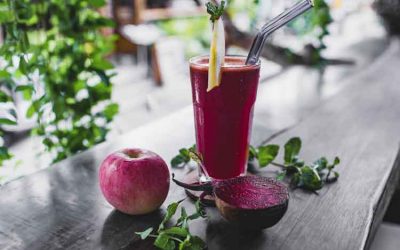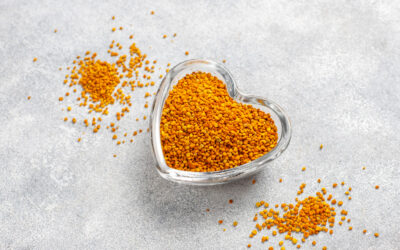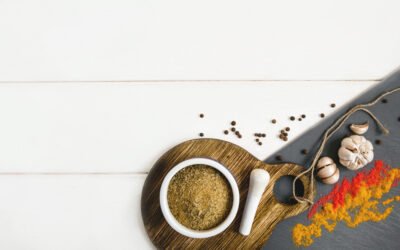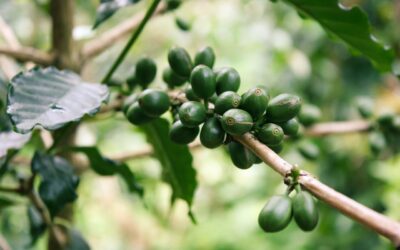Before going into the details on Nutrition for Gastroesophageal Reflux Disease, lets have a brief on GERD.
What is Gastroesophageal Reflux Disease?
Gastro Esophageal Reflux Disease (GERD) refers to the bringing up of acidic stomach substances into the esophagus. It results in a spectrum of clinical manifestations, the most common being heartburn and acid regurgitation.
The pathology reflux can result in a wide variety of clinical presentations. GERD is classically chronic and generally non- liberal. In some cases GERD are associated with the development of complications of increasing severity and significance.
Reflux arises when the pressure inside the stomach is higher than that maintained by the muscles found where the stomach and esophagus meet. This can happen for a number of reasons, outlined in the etiology below.
| Footnote. GERD is a disease or a digestive disorder which brings up the stomach juice to esophagus. It can be manifest by heartburn and acidity. |
Gastroesophageal Reflux Disease ICD 10.
The code for Gastroesophageal Reflux Disease ICD 10 is K21.9.
Etiology of GERD.
GERD may progress due to any of the following causes:
- Shrunk muscle tone or atypical relaxation of the LES (Lower Esophageal Sphincter).
- Reduced stomach motility , allowing food to remain too long in the stomach (gastric stasis).
- Hiatus hernia.
Occurrences of reflux are started or degenerated by a variety of factors. Indications may be serious by chocolate, caffeine, alcohol and spicy foods, which stimulate acid secretion or by fatty foods, which delay stomach emptying.
Severity works in contradiction of normal digestion and can endorse reflux when the patient bends over or lies horizontally.
In accumulation, pregnancy or constipation may deteriorate GERD by growing intra-abdominal pressure.
Tributary causes of GERD comprise reflux caused by:
- Acid hyper secretory states.
- Connective tissue disorders (scleroderma).
- Gastric outlet obstruction as triggered by ulceration and attack.
- Overdue gastric voiding due to conditions such as gastric stasis, duodeno gastroesophageal bile reflux, neuromuscular disease, idiopathic, pyloric dysfunction, duodenal dysmotility , or gastroparesis .
Maximum patients with complicated GERD have a hiatus hernia, by shifting the LES segment of the distal esophagus, both declines LES pressure and weakens acid clearance.
| Footnote. GERD may cause due to many reasons like LES, hiatus hernia, gastric problems, bile reflux and many more. |
Gastroesophageal Reflux Disease Symptoms.
Most common symptoms are complain of heartburn, a painful or uncomfortable feeling in the chest, which may radiate to the back.
Often the patient will diagnose a pattern of indications related to timing, food or body position.
Heartburn may be mistaken for angina pectoris, which is a pain in the chest related to heart disease, a careful history and physical examination should distinguish between the two (while it is certainly probable for a patient to have both).
Symptoms are most often present after meals, especially after eating certain foods and night while lying in bed and may be relieved temporarily by antacids or milk.
In addition to heartburn, difficult or painful swallowing, a sour taste in the mouth and frequent belching are common. Fewer distinctive features include chronic cough, hoarseness, sore throat and a sensation of fullness.
Other symptoms – esophageal signs contain laryngitis, pharyngitis, chronic sinusitis, dental erosion, asthma, and chronic cough.
These symptoms can occur as a result of gastric acid reflux into the throat and vocal cords or down into the lungs, acid reflux due to GERD can also erode teeth.
Some of the common complications which have been observed among patients with GERD are being discussed below .
| Footnote. There are many symptoms of GERD. But it is most identified by heartburn, discomfort in chest. It is mostly seen after having meals. |
Gastroesophageal Reflux Disease Complications.
Apart from the symptoms, there are a little additional esophageal manifestations of gastro esophageal reflux disease. These include nausea and vomiting and erosive changes in dental enamel.
Sometimes, patients existing with occult upper gastrointestinal bleeding or with iron deficiency anemia.
The main complications include:
- Esophagitis (soreness of the esophagus).
- Bleeding, esophageal erosion and ulcerations (frequent reflux of acid into the esophagus), stricture (narrowing) of the intestines.
- Barrett’s esophagus (replacement of ulcerated squamous epithelium by a metaplastic intestinal – type epithelium).
- Adenocarcinoma of the esophagus. Reflux – persuaded wound to esophageal tissue can result in tissue damage and the growth of esophageal erosion or ulcerations.
Numerous long / short period complications may rise due to Gastroesophageal Reflux disease which may in turn upsurge the incidence or severity of this disease. One of the complications of clinical relevance is hiatus hernia.
It is clear from above discussions on the etiology, symptoms and complications on GERD that the nutrient requirements during this condition do not vary much from RDI (recommended dietary intake) for a normal individual.
However, as in case of esophagitis, dietary management particularly with respect to meal pattern has greater significance.
| Footnote. Many complications either for long term or short term are seen. Nausea and vomiting are the common complications. Along with this main complications like esophagitis, ulcerations etc are found. |
Other Factors that Cause GERD.
Meals are the major annoying factor of GERD symptoms, since they rouse the manufacture of gastric acid available for reflux into the esophagus.
Meals that are consumed within 2 to 3 hours of bedtime (which upsurge acid availability during night), or with liquor, can prejudice patients to nocturnal reflux.
Dietary fat in the duodenum also seems to be a strong reflux trigger, in portion by impairing gastric emptying. Also, it is inappropriate to advise to reduce the fat content of their meals, at least with regard to GERD symptom relief.
Particular foods that have been recognized as possibly irritating factors in assured patients. This include chocolate, peppermint, citrus juices, raw onions, caffeine, alcoholic beverages, tomato products and spicy foods.
Peppermint and chocolate are supposed to lower LES tone, assisting reflux. Citrus juice, tomato juice and perhaps pepper can annoy and damaged esophageal mucosa.
Beverages like cold drinks, coffee, tea and beer can have an acidic pH, lowering LESP (Lower Esophageal Sphincter Pressure) to precipitate indications. Probable esophageal irritations should be constrained.
| Footnote. Meal is another factor that can cause GERD. Highly consumption of spicy food, beverages or food which are acidic can cause GERD. |
Gastroesophageal Reflux Disease Risk Factors.
Obesity is believed to be another latent prejudicing factor to gastro esophageal reflux or GERD. Maintaining ideal body weight according to the age can help in dropping the symptoms.
Pregnancy is the most common condition predisposing to GERD. It is generally related with indicative GERD (typically heartburn) rather than esophagitis.
In most cases, signs happen for the first time during the pregnancy and decrease soon after delivery. But reappearance is also a chance with subsequent pregnancies.
A hiatus hernia is frequently found among the patients with GERD. A hiatal hernia is alternative factor troubling the integrity of the gastro esophageal sphincter. It results in increased esophageal acid exposure.
Smoking is found to be connected to a bigger number of reflux actions and associated with deep inspiration and coughing.
| Footnote. Obesity is believe to be one of the risk factor to GERD. Along with this, pregnancy and hiatus hernia are one of the most common condition related to GERD. |
Nutrition for Gastroesophageal Reflux Disease.
It would be important to note here that if GERD has developed due to obesity, it is essential to prescribe a weight loss diet for the patient.
Nutrition for Gastroesophageal Reflux Disease may also change during certain complications such as bleeding. Thereby it is required to increase the intake of dietary proteins, iron , B-group vitamins and vitamin C.
Dietary outline on the other hand needs to be different for all patients.
Guidelines on Nutrition for Gastroesophageal Reflux Disease.
- Should go for bland diet.
- Avoid spicy food and spices like pepper, chilli flakes.
- Should select wide variety of foods.
- Foods which distress should be avoid.
- Moderate use of seasoning should be done.
- Meals timings should be maintained. It is very important for the patient suffering GERD.
- Protein rich snacks in between meals should be taken.
- Light meal in moderate amount should be eaten. Avoid heavy meals.
- Avoid outside foods. Home foods are mostly preferred.
- Avoid smoking and alcohol.
- Give short rest before and after meals.
- Chew food properly and eat slowly. Eating pattern is important as fast eating triggers gastric feeding reflex.
Foods To Include in Gastroesophageal Reflux Disease.
Dairy products like yogurt, mild cheese, butter etc. boiled egg, steamed fish, rice, puffed rice, rice flakes, steamed and well cooked green leafy vegetables, pulses (in case not causing gas forms), malted drinks
Which of the Following Dietary or Nutritional Factors may Worsen Gastroesophageal Reflux Disease?
- Alcohol.
- Strong tea.
- Cold drinks.
- Coffee.
- Pickles.
- Spices.
- Condiments.
- Fried foods.
- Curries.
- Cakes.
- Pastries.
- Junk food.
- Raw vegetables like cucumber, onion, radish, and tomatoes.
Frequently Asked Questions.
The best medicines for the treatment of GERD are:
Rabeprazole (Aciphex).
Pantoprazole (Protonix).
Dexlansoprazole (Dexilant).
Esomeprazole (Nexium).
Lansoprazole (Prevacid).
Omeprazole (Prilosec, Zegerid).
Bottom Line.
Therefore, it can be conclude that GERD is one of the most chronic gastrointestinal disease. It can commonly be identified by heart burn and chest discomfort. It contributes many complications like nausea and vomiting. Obesity, pregnancy and hiatus hernia are one the risk factors.
In order to get relief from GERD prefer proper Nutrition for Gastroesophageal Reflux Disease i.e., avoid spicy foods, fried foods, junk foods etc., which irritates stomach. It is always advised to take a healthy balanced diet to stay fit and healthy and merely disease free.
Along with your diet keep some physical activity like exercise or yoga in your daily routine. These have a lot of health benefits.
+3 Sources
Freaktofit has strict sourcing guidelines and relies on peer-reviewed studies, educational research institutes, and medical organizations. We avoid using tertiary references. You can learn more about how we ensure our content is accurate and up-to-date by reading our editorial policy.
- The lower oesophageal sphincter; https://pubmed.ncbi.nlm.nih.gov/15836451/
- Gastric Stasis; https://www.ncbi.nlm.nih.gov/books/NBK482271/
- Hiatal hernia; https://www.mayoclinic.org/diseases-conditions/hiatal-hernia/symptoms-causes/syc-20373379
How we reviewed this article:
Our team of experts is always monitoring the health and wellness field, ensuring that our articles are updated promptly as new information emerges. See Our Editorial Process
Oct 31, 2025
Written By: Nebadita
Reviewed By: Pallavi Jassal
Written By: Nebadita
Reviewed By: Pallavi Jassal

 Workout
Workout

 Meditation
Meditation






 Podcast
Podcast
 E-book
E-book


